
Freethought is an unorthodox attitude or belief.

Karl Hjalmar Branting was a Swedish politician who was the leader of the Swedish Social Democratic Party (SAP) from 1907 until his death in 1925, and three times Prime Minister of Sweden. When Branting came to power in 1920, he was the first Social Democratic Prime Minister of Sweden. When taking office for a second term after the general election of 1921, he became the first democratic socialist head of government in Western Europe elected under universal suffrage. An early supporter of modern social democracy and democratic socialism, he led the SAP through a transformation from a radical socialist movement to Sweden's dominant party; the Social Democrats have been Sweden's largest party in every election since 1914, and formed government for 44 continuous years from 1932 to 1976.

Charles Bradlaugh was an English political activist and atheist. He founded the National Secular Society in 1866, 15 years after George Holyoake had coined the term "secularism" in 1851.
Laws prohibiting blasphemy and blasphemous libel in the United Kingdom date back to the medieval times as common law and in some special cases as enacted legislation. The common law offences of blasphemy and blasphemous libel were formally abolished in England and Wales in 2008 and Scotland in 2024. Equivalent laws remain in Northern Ireland.

Humanists International is an international non-governmental organisation championing secularism and human rights, motivated by secular humanist values. Founded in Amsterdam in 1952, it is an umbrella organisation made up of more than 160 secular humanist, atheist, rationalist, agnostic, skeptic, freethought and Ethical Culture organisations from over 80 countries.
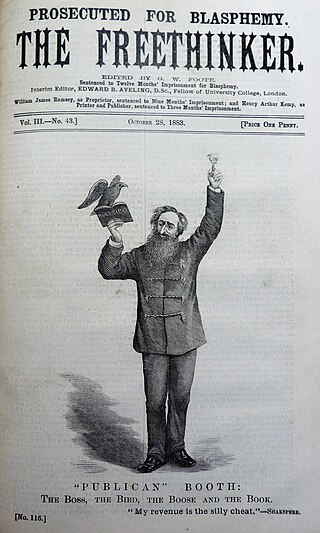
The Freethinker is a British secular humanist publication, founded by G. W. Foote in 1881. One of the world's oldest surviving freethought publications, it moved online-only in 2014.
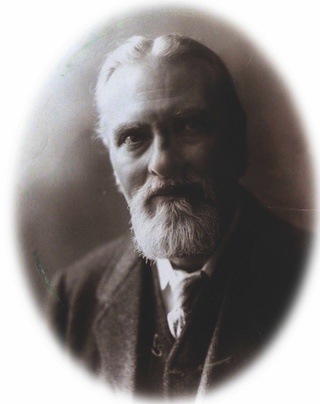
George William Foote was an English radical journalist, writer, editor, publisher, and prominent secularist. He was a leading advocate of freethought, founding and editing notable publications such as The Freethinker and The Secularist and co-founding the British Secular Union. Additionally, he ran a publishing business known as the Pioneer Press. Foote was convicted of blasphemy in 1883 for his satirical attacks on Christianity published in The Freethinker and sentenced to a year in prison. He authored over eighty works, mainly polemical pamphlets, with his editorial essays from The Freethinker compiled into Flowers of Freethought (1893–94).
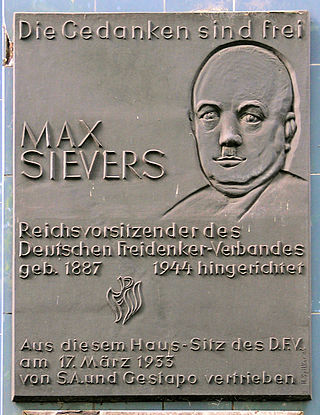
Max Georg Wilhelm Sievers was chairman of the German Freethinkers League, writer and active communist, later social democrat.

Edwin Frederick Kagin was an attorney at law in Union, Kentucky, and a founder of Camp Quest, the first secular summer camp in the United States for the children of secularists, atheists, agnostics, brights, skeptics, naturalists and freethinkers. He served as the National Legal Director of American Atheists from 2006 until his death in 2014.

John William Gott was a British socialist and the last person in Britain to be sent to prison for blasphemy. His was also the last public prosecution. Later prosecutions were purely private.
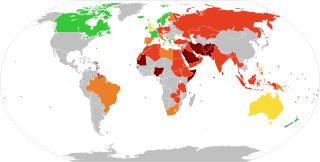
A blasphemy law is a law prohibiting blasphemy, which is the act of insulting or showing contempt or lack of reverence to a deity, or sacred objects, or toward something considered sacred or inviolable. According to Pew Research Center, about a quarter of the world's countries and territories (26%) had anti-blasphemy laws or policies as of 2014.
Blasphemy law in Indonesia is the legislation, presidential decrees, and ministerial directives that prohibit blasphemy in Indonesia.
The main blasphemy law in Egypt is Article 98(f) of the Egyptian Penal Code. It penalizes: "whoever exploits and uses the religion in advocating and propagating by talk or in writing, or by any other method, extremist thoughts with the aim of instigating sedition and division or disdaining and contempting any of the heavenly religions or the sects belonging thereto, or prejudicing national unity or social peace."
Charles Southwell was a radical English journalist, freethinker and colonial advocate.

Samuel Porter Putnam was an American freethinker, critic and publicist.
Irreligion is common in Sweden, and Sweden is one of the most secular nations in the world. The majority of Swedish citizens are members of the Church of Sweden, but very few are practicing members. Sweden has legally been a secular state since 2000 when the Church of Sweden was separated from the state.
Irreligion in Finland: according to Statistics Finland in 2020, 29.4% of the population in Finland were non-religious, or about 1,628,000 people. The Union of Freethinkers of Finland and other organisations have acted as interest organisations, legal protection organisations and cultural organisations for non-religious people. In a 2018 international ISSP survey, 40% of the Finnish population said they did not believe in God, 34% said they believed in God and 26% did not know. Nearly one out of every five people in the country is not a member of a religious organisation, and the number of people with no religious affiliation has doubled in two decades.
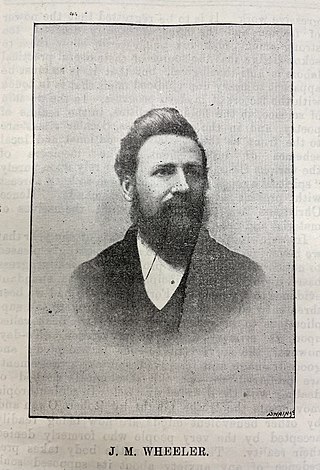
Joseph Mazzini Wheeler was an English atheist and freethought writer.

The situation for apostates from Islam varies markedly between Muslim-minority and Muslim-majority regions. In Muslim-minority countries, "any violence against those who abandon Islam is already illegal". But in some Muslim-majority countries, religious violence is "institutionalised", and "hundreds and thousands of closet apostates" live in fear of violence and are compelled to live lives of "extreme duplicity and mental stress."













